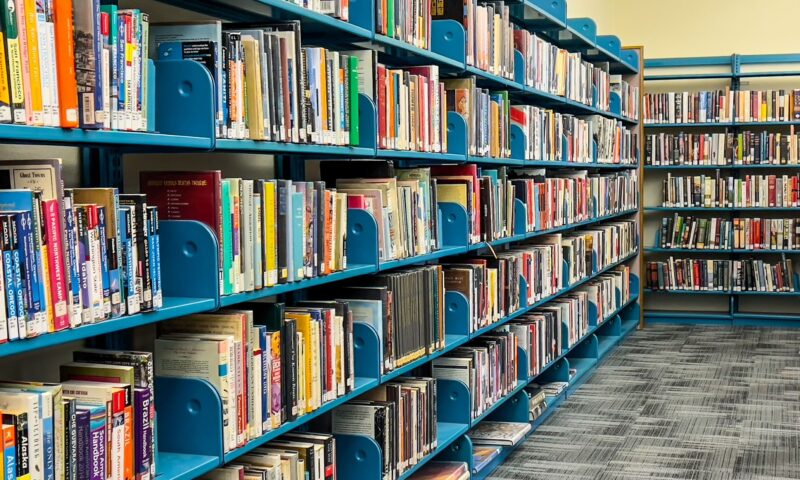
Library Group Launches Accessibility Grant Program
The American Library Association’s $7 million fund is designed to support libraries in small and rural communities.
The American Library Association has adapted one of its long-running programs to support accessibility needs at small-town and rural libraries.
Since 2014, ALA has operated the Libraries Transforming Communities (LTC) program, which provides grants to libraries to bolster their roles as community centers. “It started off as a need to shift public discourse away from libraries as institutions in crisis and as a way for us to facilitate them as agents of change,” said Samantha Oakley, project director in ALA’s public programs office.
ALA has gathered information about where to focus the attention of LTC in various ways: Conversations with ALA members, a dedicated advisory committee, and interviews with grantees via an independent evaluator. In recent years, Oakley said, that feedback has coalesced around improving accessibility for small and rural communities—that is, towns with populations of 25,000 people or less and located more than five miles from an urban area.
To that end, last year ALA began accepting applications for $7 million in grants to support accessibility improvements and programs. An initiative of ALA’s public program office, LTC staff tapped into the office’s history of securing federal grant support and other donations to fund the initiative.
Selection of recipients is handled by the ALA’s public programs office, with input from staff from other departments with expertise in accessibility, as well as peer reviewers from membership. “It’s staff-led, but there are critical engagement points with practitioners in the field via ALA membership,” said Melanie Welch, director of ALA’s public programs office.
We’re trying to emulate the disability justice model, whose credo is ‘nothing about us without us.’
Samantha Oakley, American Library Association
Thus far, ALA has disbursed approximately half of the $7 million to more than 240 libraries in 43 states. Among the recipients are a library in Bessemer, Penn., studying how to support autistic patrons; a library in Winfield, Kan., addressing community illiteracy and dyslexia; and a Nevada, Iowa, library, looking to install a chair lift at its facility, which serves as the town storm shelter.
More than half the grantees thus far are in communities with fewer than 5,000, and Oakley said that it’s often in those places where accessibility needs are most acute.
“They really needed funding in order to help people with disabilities because either they’re way out in the middle of nowhere and they are the only public service in town, or their libraries are old Carnegie buildings, and there are barriers to people physically being able to get in the building,” she said.
LTC is currently finalizing the recipients for the remainder of the $7 million grant, and gathering information about the first group of grantees. “One of the things we’re looking to measure is how [grantees] have been able to listen to their communities,” Oakley said. “One of the keystones of this project is that they have to have a conversation with the population that they are seeking to serve—we’re trying to emulate the disability justice model, whose credo is ‘nothing about us without us.’”
To that end, a key metric for the success of the program is not raw numbers of patrons served, but how well the program serves the subset of the community that’s targeted. “We measure the number of people served, who attended the conversation, but sometimes it’s a 100-person community in rural Alaska,” Oakley said. “They may have only one or two people in the conversation, but that’s one percent of their population.”
(Juanmonino/iStock)






Comments